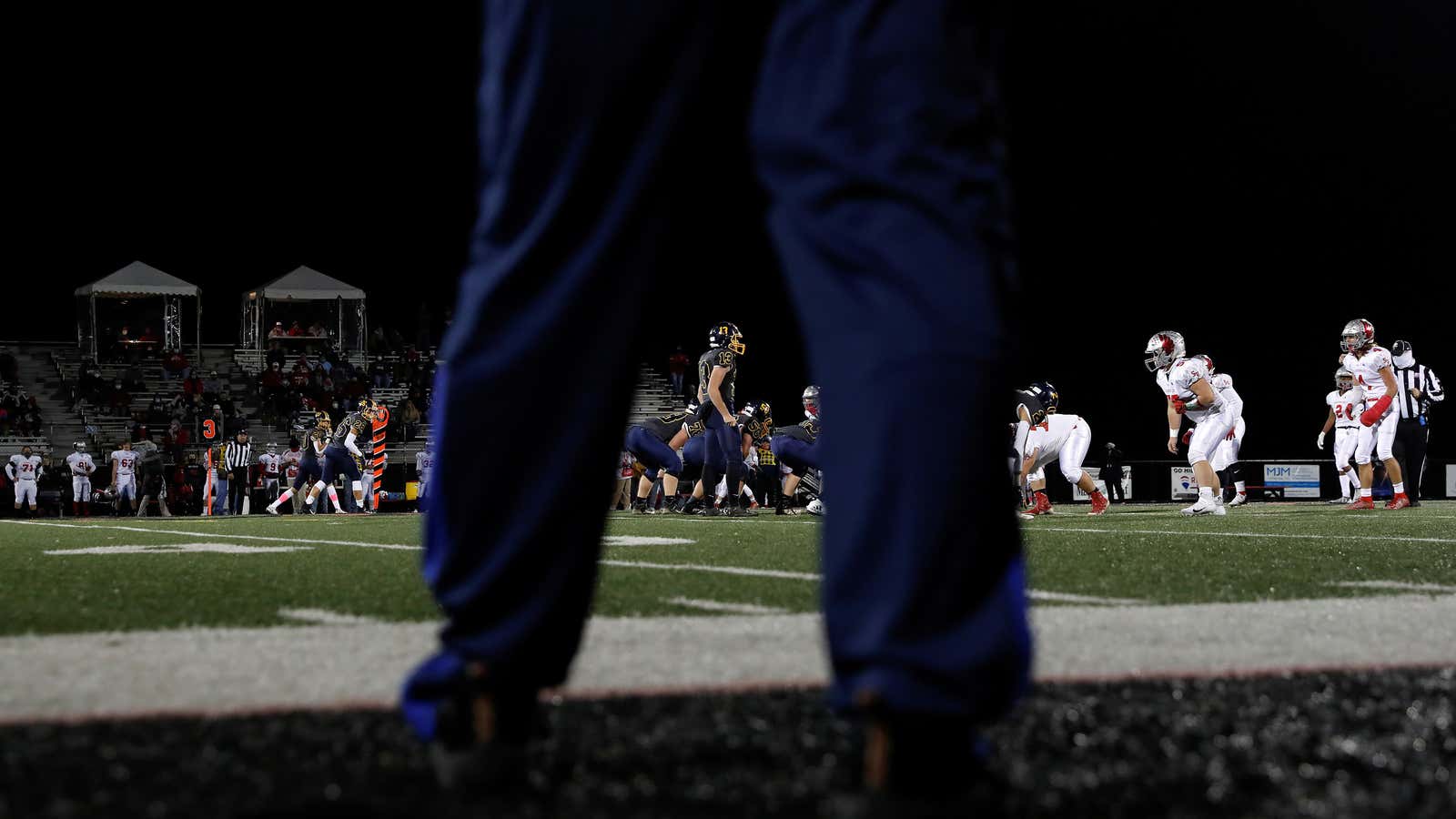The college athletics world was flipped upside down last month when the National Collegiate Athletic Association (NCAA), under pressure from numerous state governments and the US Supreme Court, changed its long-held rule that college athletes could not monetize their fame. Now, college athletes can nab endorsement deals, sell signed autographs, and profit off their social media accounts without fear of losing their scholarships.
But in the world of high school sports, there’s still an uneven playing field. In the US, only California permits high school athletes to profit off their names, images, and likeness (NIL). That means students in the rest of the country aren’t able to tap into the growing market.
High schoolers are out of pocket
High school athletes are not governed by one overarching organization like the NCAA but rather a medley of statewide athletic associations. Before any high school athlete can profit off his or her NIL without consequence, the state athletic association and, if applicable, the state’s NIL law must allow for it. More than a dozen state NIL laws are already in effect and a dozen more will go into effect in the coming years, but these laws only afford rights only to college students.
The California Interscholastic Federation (CIF), which governs the state’s high school athletics, confirmed to Quartz that it has long allowed student-athletes to profit off of their NIL with the stipulation that they cannot use their school’s name, logo, or team uniform in an advertisement—a stipulation that applies to college athletes in many states. CIF Spokesperson Rebecca Brutlag said that this rule has been necessary since many student-athletes are also involved in the film and television industries in some way.
An NCAA spokesperson told Quartz that, because of its recent rule change, high school students can engage in NIL activities without jeopardizing their NCAA eligibility, though they must follow high school association rules to retain their eligibility to play at the high school level.
Tough state laws
In high school and college sports, academic institutions have made amateurism a requirement to participate in their athletic programs. Those rules prevented young athletes from drawing salaries or signing lucrative sponsorship deals while schools and college coaches recorded billions in sports-related revenue. Clemson football coach Dabo Swinney, for one, makes $9.3 million per year.
That inequity drew the ire of students and activists alike who demanded opportunities to earn money as athletes, something the NCAA has vehemently resisted. The NCAA finally changed its rule about NIL after state legislatures passed new laws that would have forced their hands and created inconsistent rules across the country. Allowing athletes to earn NIL revenue represented a “third way” for students to get paid while maintaining their athletic scholarships, one scholar recently told Quartz.
Although state legislatures effectively compelled the NCAA to act on NIL, three of the states that passed NIL laws specifically barred high school athletes from taking advantage of the rights given to college athletes. Illinois, Mississippi, and Texas state laws expressly prohibit prospective college students from entering NIL deals before they enroll in college, as sports and entertainment lawyer Darren Heitner points out in the sports website Outkick. Other state laws remain mum on the issue, though numerous state athletic associations prohibit high school athletes from profiting off their fame.
Yet a similar dynamic that followed the NCAA rule change may trickle down to high schools too. NIL is a recruiting tool. At the collegiate level, a robust NIL program that helps student-athletes cash in on their public profile could be a boon for recruiting. The University of Texas already offers a series of classes through its Leverage program advising students on personal branding, entrepreneurship, financial literacy. Some legislators have even supported NIL legislation specifically so their state universities would not lose a competitive advantage for recruiting.
The same could be true on the high school level, especially if high school stars see California’s high school system as a way to play their sports and profit off their fame. The sports website 247Sports points out California is one of four states, along with Florida, Georgia, and Texas, that produce the most recruiting prospects for the NCAA. California’s lenient NIL policy could give it a competitive advantage over the others.
Some of the pressures, and profits, of professional sports may soon become part of high school as well.
This story has been updated to include comment from the NCAA.
